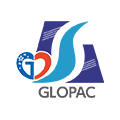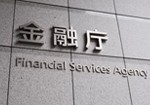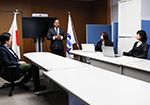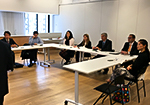Meet Our
17th Visiting Fellows
These are the former Visiting Fellows for the 17th GLOPAC term, October 2020 to January 2021. Representing 8 different countries, they are the first group of Fellows who are attending the Program remotely due to concerns with the Covid-19 pandemic.
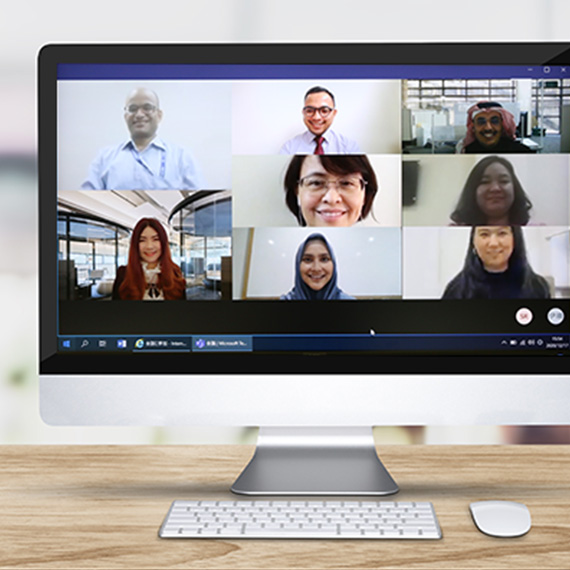
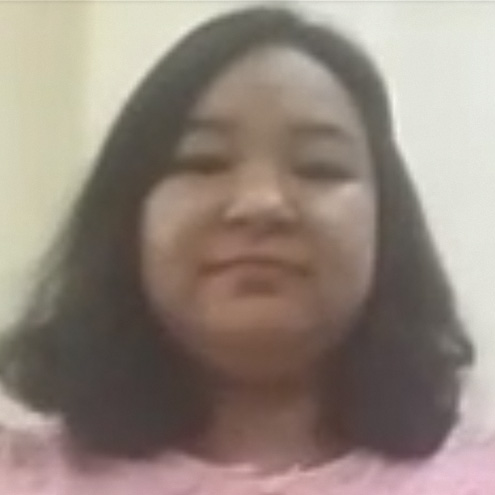
2 Minute Read
Ms. Ei Thandar KhinMyanmar
Central Bank of Myanmar
Assistant DirectorFinancial Institutions Supervision
October 2020 to January 2021.
“I got so much knowledge from lectures and other participants’ experience about the banking sector of Japan.”
What was your experience like at GLOPAC?
I got so much knowledge from lectures and other participants’ experience about the banking sector of Japan.
What is the most important thing you learned?
I learned about the credit management methods of JFSA and using financial literacy for student level that is important in the financial environment.
How are you applying what you learned?
I will apply the supervisory approach guidance and risk assessment methods that I learned from GLOPAC.
What would you like to tell people who are considering applying?
GLOPAC is effective and useful for supervisors, and this program gives tough supervisor approaches, views, assessment means, and reporting tools.
Is there anything else you would like to add?
Nothing special for me. This program was a happy, wonderful, and educational experience of Japan’s banking system, management, guidance, and government policies for creditworthiness and financial literacy.
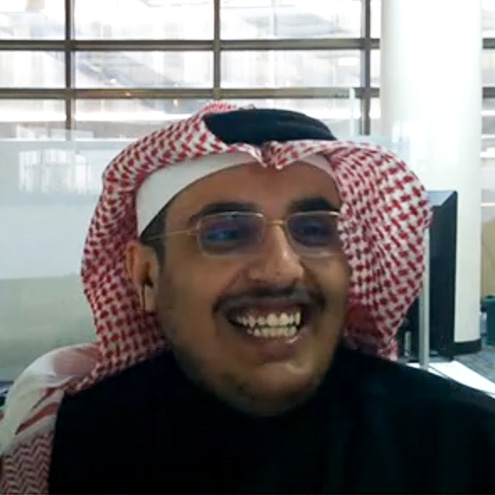
2 Minute Read
Mr. Mansour AlmohayaSaudi Arabia
Saudi Arabian Monetary Authority
Banking Treasury Risk Specialist
Banking Supervision
October 2020 to January 2021
“My overall experience during the GLOPAC Fellowship Program was excellent.”
What was your experience like at GLOPAC?
My overall experience during the GLOPAC Fellowship Program was excellent. The program structure accommodated all the areas of interest communicated by the participants and provided valuable insight from both public and private sector perspectives (FSA, banks, associations, etc.).
What is the most important thing you learned?
Although there are many lessons from the program to choose from, I think it was important for me personally to understand the rationale behind the aspects that differ between the approach adopted by the FSA and other regulators represented in the GLOPAC program.
How are you applying what you learned?
The program helped with providing a new perspective on various topics which might not be directly associated with the participants’ current roles. This provided new perspectives which can be applied to day-to-day activities. For example, a session on the adoption of new technology by banks led us to add this topic as part of our ongoing discussion with market participants, so as to better understand their strategic direction in this regard.
What would you like to tell people who are considering applying?
I would tell them that the GLOPAC program is a unique initiative developed by the FSA which allows the flow of experience and thoughts/approaches on common topics among participants. It also helps in building the foundation for future collaborations on various fronts among fellows. I would highly recommend colleagues participate in the GLOPAC program, as it will surely help in expanding your knowledge base and learning about different approaches adopted globally by regulators.
Is there anything else you would like to add?
I would like to thank the FSA, GLOPAC organizing team, and participating fellows for the great experience and for working together to ensure the success of the first virtual GLOPAC program. I hope that this type of collaborative effort between us continues and grows as we go along.

2 Minute Read
Ms. Pariyada ArsayawachiraThailand
Bank of Thailand
Senior ExaminerSupervision
October 2020 to January 2021.
“It has been invaluable to learn about Japan’s regulations, policies, methods, and practices as well as how FSA tackles supervision issues.”
What was your experience like at GLOPAC?
I have gained lot of useful data from the GLOPAC Fellowship Program. It has been invaluable to learn about your country’s regulations, policies, methods, and practices as well as how FSA tackles supervision issues. The lectures and contents from FSA, other authorities, and organizations were beneficial, informative, and very interesting. It has broadened my knowledge about the Japanese banking system and your financial institutions’ supervision in Japan. I got not only knowledge about supervisory frameworks, regulations, approaches, and measures from your country, but also supervision experience and opinions from all participants. Moreover, it is very imperative to exchange our supervision knowledge and experience with each other in order to adapt or improve our existing policies, regulations, measures, and process for banking supervision in the future.
What is the most important thing you learned?
Every session of the GLOPAC Fellowship Program was so important. I comprehensively gained knowledge about the Japanese banking system and financial institutions’ supervision. Due to our different financial structures and environments, as well as household and business debt burdens, I realized that Japan and Thailand have differences in regulatory structures, supervisory frameworks, and debt resolution. I am impressed with your monitoring and supervision processes for financial institutions. It is very useful to know how FSA conducts effective on-site and off-site supervision, as well as how FSA analyzes the economic environment with forward-looking viewpoints in order to take prompt intervention or action. Therefore, it is necessary to share this knowledge with my organization and colleagues in order to improve the banking supervision process in Thailand.
How are you applying what you learned?
The GLOPAC Fellowship Program has extended my knowledge about banking supervision. The method which FSA adopts to monitor and supervise many types of financial institutions in Japan is very interesting. Especially, the methods and process of off-site supervision is very useful. I have learned effective approaches to inspect financial institutions with limited time and resources. I can share the efficient off-site supervision methods with my organization in order to improve our supervision framework and process. Furthermore, other important knowledge from the program is the ideas and concepts concerning financial literacy, debt resolution, and several types of loan programs for SMEs in your country that I can adapt to my country’s program/scheme.
What would you like to tell people who are considering applying?
This international collaboration has allowed me to experience different approaches to financial regulation, and I think that this is an important learning experience that is not often available.
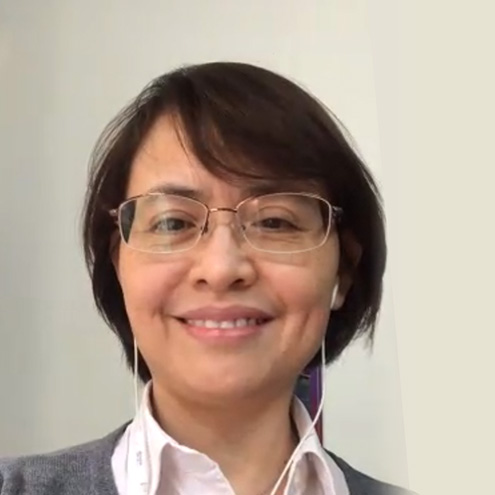
2 Minute Read
Ms. Tran Thi HoaVietnam
State Bank of Vietnam
Deputy ManagerBanking Supervision
October 2020 to January 2021
“Even though the program was entirely virtual I did not feel any distance between us.”
What was your experience like at GLOPAC?
At GLOPAC, even though the program was entirely virtual I did not feel any distance between us.
What is the most important thing you learned?
The most important thing I learned was how to supervise foreign banks.
How are you applying what you learned?
I am working to revise our regulations on licensing and inspections. Based on what I have learned, depending on the situation, I will try to reduce or loosen the licensing requirements for banks requesting to launch new activities. I will also move quicker to approve the risk based supervision rather than making an inspection plan every year.
What would you like to tell people who are considering applying?
I will recommend that they apply this program as soon as they can because of how useful of the content is and the high applicability to our daily work.

